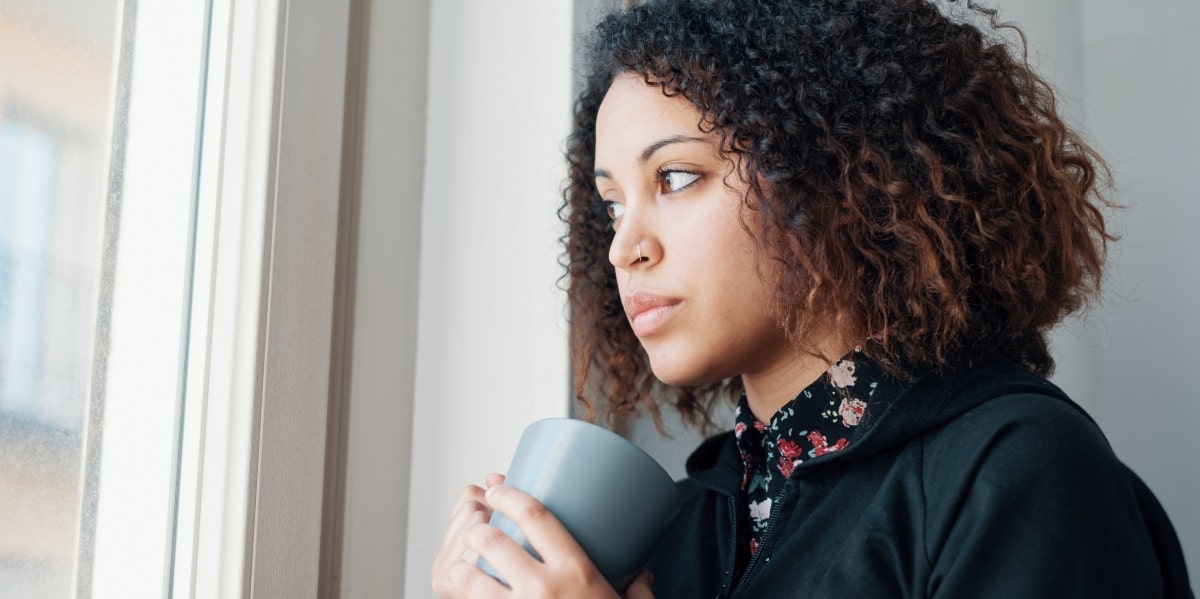The Most Important Ingredient For Emotional Health — And Why So Many Of Us Don't Have It
Even introverts need it!
 getty
getty We're all wired for connection. And because our health actually depends on the quality of our relationships, the last two years have made us all a little bit bonkers.
But for many people, a lack of human connection isn't new, and they feel the effects of this no matter what is happening in the world.
The drastically reduced access to casual and peripheral relationships with co-workers, neighbors, and the people we see day to day in the world has been strange, unsettling, and alienating in the last two years, giving us insight into what isoltion feels like for people.
In addition, the more deeply felt loss of regular contact with close family and friends has been more directly harmful.
RELATED: 10 Ways To Create A Deep Emotional Connection With Your Partner
Finally, the increased pressure on our intimate relationships as we have been stuck in lockdown repeatedly and in work from home has caused intense struggle in our most important relationships.
The cumulative result of all of this means our nervous systems are suffering.
How does the power of human connection benefit us?
We depend on our relationships for many things — support, stimulation, relaxation, affection — but many people don’t realize the physical needs we have for these connections.
This is even true for introverts!
Sharing laughter, a conversation, or even a look across a crowded bus with a stranger connects our brains to one another.
When this happens, circuits in our brains light up, releasing chemicals that lower stress, regulate mood, increase pleasure — all of which help our bodies work better.
We sleep better, our blood pressure stabilizes, our mood is better when we have regular positive connections with others. The more frequent and deeper the connections we have, the more powerful the benefits.
When we are deprived of these connections, we feel worse and our health suffers.
When connections are strained and we struggle and avoid and isolate to protect, we suffer more.
When the balance between alone time and connection is off and we are in too much of one or the other, our ability to connect naturally and meaningfully is impacted and we may numb or disconnect from others or from ourselves.
The great news is that with attention, these conditions are temporary and reversible!
As a couples therapist, my focus is on building the quality of your connections. These are difficult times for so many couples because of the quantity of mandated time together and the complexity of life in work from home and Covid worry.
At the same time, it's possible to create healthier connections with simple and quick exercises and actions to remind yourself of the power and importance of your relationship, whether you are in a phase of feeling madly in love or sick of each other.
Quick moments of sustained eye contact with a friendly face can reconnect you briefly but powerfully to help your nervous systems regulate one another. Turning off your devices and breathing together face to face deepens that moment.
Holding hands or even giving brief foot massages can offer a needed physical connection that reminds us of the importance of one another.
Each of these things can take seconds if you need them to be quick, but each holds the power to provide a critically important balm for your nervous system.
Finding ways each day to prioritize contact with the people around you, especially out in the world, provides a way to return yourself to the land of the living and support others struggling around you!
Try one of these things in the next week and see what you notice. While it may feel artificial or weird at first, stay with it and watch your mood, your sleep, and overall feeling of well-being improve!
Carolyn Sharp is a couples’ therapist with over 20 years experience supporting healthy connected relationships. To sign up for her newsletter and be alerted for new blog posts and updates, visit her website.
